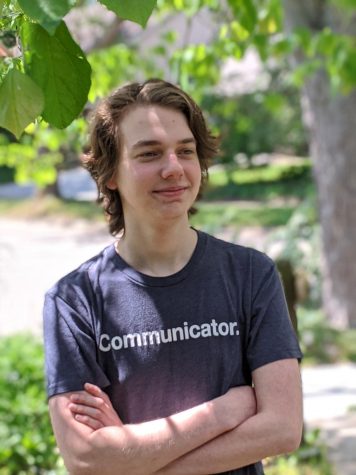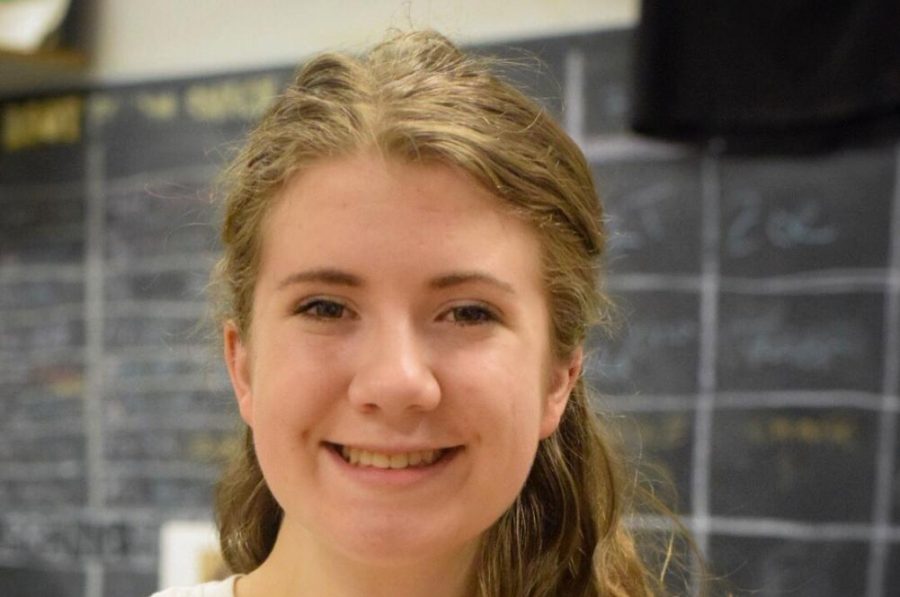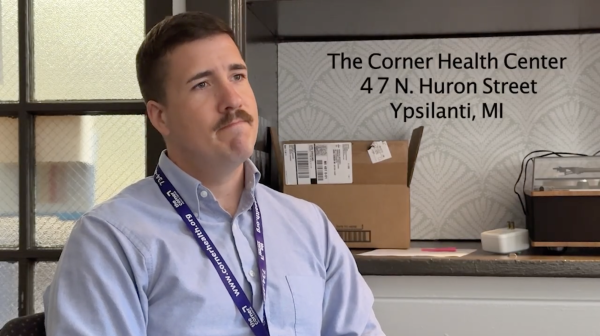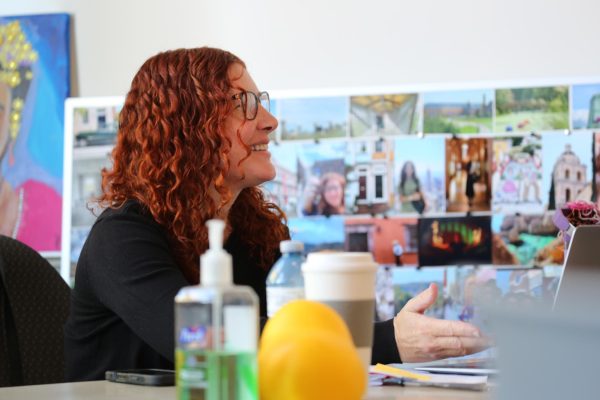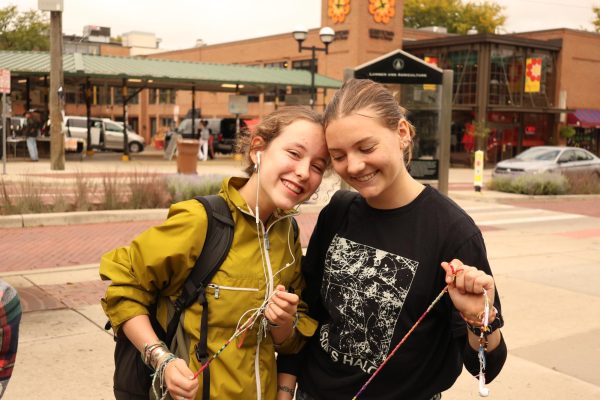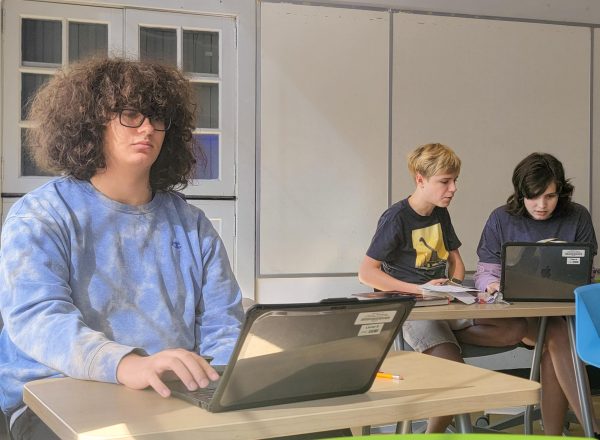A Senior’s Perspective on Mock Trial
Grace Jensen doesn’t plan on becoming a lawyer.
Her career plans lie in a very different area: She wants to become a journalist, and write full time.
“I think that being an attorney might break down my willpower, or something,” Jensen said. “It’s definitely a demanding job, and you have to be a certain type of person to be able to take that.”
Despite this lack of interest in law as a career, however, Jensen currently competes on Community High School’s mock trial team. She’s A-Team’s Co-Captain, and has been a part of mock trial for her entire high school experience.
Even though Jensen doesn’t plan on becoming a lawyer, she thinks mock trial has helped her with public speaking, being persuasive, and more. “mock trial helps me with everything, I think,” she said.
Jensen first joined mock trial four years ago, her freshman year. She joined in a large part as a way to improve her public speaking skills. She’s “always been sort of a shy person, so I wanted to just get that confidence to be able to speak in public,” Jensen said.
She thinks that mock trial helped her with this skill a lot. “I think that part of the fear of speaking in public is that you’re going to say something wrong, but in mock trial you always say something wrong,” Jensen said. “And you have to argue for why it’s not wrong, and the way you argue that is by seeming confident. So even if you’re not confident, you fake it until you make it.”
Jensen ended up sticking with this club for the next three years. Her first year on the team she was an alternate, her second year she was a member of B Team, and her third and fourth years she’s been on A-Team. She stayed with the club mainly because of the people.
“Just having that group of people really helped me get into the high school experience, I guess, and find people to hang out with,” Jensen said. “And after I had found that group, I didn’t want to do anything else.”
In the course of her time with mock trial, Jensen has played the roles of both lawyer and witness, sometimes both in the same season. She prefers being a lawyer, as she dislikes the feeling of powerlessness she sometimes feels on the witness stand. But she likes being a witness too. “It’s kind of fun to try and wiggle out of questions, [and] have a character,” she said.
Jensen thinks that both roles are important, but in different ways. “Lawyers are like your foundation, you have to have good lawyers in order to be able to argue the case,” she said. “But then [witnesses] are…kind of the icing on top of the cake.” Good witnesses are — according to her — what can set a team apart when it comes to tougher competitions, but good lawyers are needed to get them to that point.
In order for both lawyers and witnesses to get to a high skill level, Jensen thinks a similar set of skills are needed. She believes that mock trial has two main parts: “One is the logic part, like knowing the rules, that kind of thing,” Jensen said. “And then the second part is the performance part, and presenting, and being in front of people.” She thinks both are equally important.
This being her final season on mock trial, Jensen has one regret in particular: She never got the opportunity to argue a murder case. “Every other year it switches between criminal cases and civil cases,” she said. “We’ve never had a murder, [and] every year we hope for a murder, which sounds bad, but those are exciting.”
